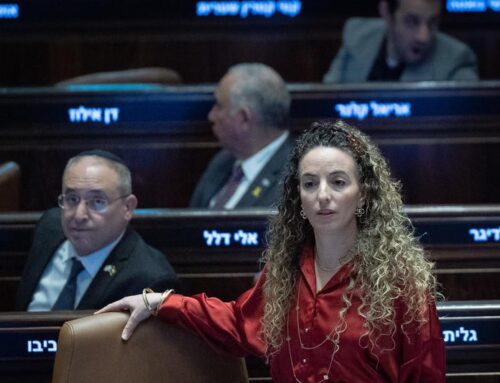Coalition pushes to break up environment bill as fight over new nature laws heads to parli
October 26, 2025
The Coalition wants to break reforms of the federal environment protection regime in two, prioritising measures to fast-track projects while likely further delaying protections for nature.
The opposition leader, Sussan Ley, has made the “constructive” offer to Anthony Albanese before the return of federal parliament on Monday, where the political fight over long-awaited legislation updating the Environment Protection and Biodiversity Conservation Act (EPBC) is expected to dominate.
The new nature laws are expected to be introduced this week but the government’s hopes of passing them before Christmas appear slim, after the Coalition and the Greens ruled out supporting them without major concessions.
The Coalition argues the laws are anti-business, while the Greens claim the opposite, accusing the environment minister, Murray Watt, of drafting changes that have “big business and the mining companies’ fingerprints all over it”.
Sign up: AU Breaking News email
After last week describing the draft laws as a “handbrake” on investment, Ley has told Albanese the Coalition was prepared to work with Labor to achieve “meaningful reform” for business and the environment.
But she wants the prime minister to agree to split the legislation in two, dealing first with “practical” measures to speed-up assessment times for projects, while effectively putting the “more contentious environmental elements” of the bill on the backburner.
“The government has itself acknowledged that streamlining environmental approvals is essential to lifting waning productivity and encouraging investment, including in the critical minerals sector,” Ley and shadow environment minister, Angie Bell, wrote in a letter to Albanese, which was provided to Guardian Australia.
“However, the draft reforms risk adding further complexity and uncertainty, creating a handbrake on investment without delivering commensurate environmental gains.”
The letter does not list the Coalition’s specific concerns but Liberal sources confirmed they include the “vague” tests in the assessment process – including the proposed definition of “unacceptable impacts” on the environment – the threat to companies of $825m fines for breaches of nature laws, and emissions reporting requirements.
Albanese will not be in Canberra to respond to Ley’s offer, as the prime minister is missing parliament this sitting week to attend regional leaders’ summits in Malaysia and South Korea.
But the government is highly unlikely to accept Ley’s offer, in part because Watt designed the laws as one package to avoid one of the major criticisms of Tanya Plibersek’s failed attempts to revamp the EPBC Act in the previous term.
Plibersek’s decision to pursue the reform in stages – starting with a federal environment protection agency (EPA) – was criticised for delaying the actual task of fixing the nature laws.
On Sunday, Watt announced the model for his EPA, confirming that the minister would retain decision-making powers on projects.
The retention of ministerial decision-making powers satisfies a key demand from the Coalition and industry and is not opposed by the Greens.
But it was criticised by the Australian Conservation Foundation, which wanted an independent agency that made decisions at arm’s length from government.
The nature laws brawl will coincide with the Coalition’s ongoing internal fight over net zero, which is set to intensify when backbench MPs meet to debate a position on Friday.
The Nationals are conducting their own internal review of the climate target, which is co-led by vocal net zero campaigner Matt Canavan.
In an interview on ABC’s Insiders, Canavan would not confirm whether the review – which is widely expected to result in the party abandoning net zero – was complete but said he would provide an update to his Nationals colleagues.
Barnaby Joyce is not expected to attend the briefing after his spectacular public break-up with the party he once led.
Amid ongoing speculation that he is planning to defect to One Nation, Joyce said on Sunday he was still a Nationals MP but would not attend any party room meetings this coming fortnight.
“I remain in the Nationals but will not be participating in any partyroom as it is not fair on the confidentiality of other members and senators,” he said.
“Additionally they [the Nationals] remain with net zero as a policy which I can not be part of as it is merely a windfall gain for the super affluent few at the expense of others for no climate effect at all.”
On Monday, the Senate is also scheduled to debate legislation to fully establish a “custodian” to oversee the triple-zero system.
First recommended in the aftermath of the major Optus outage in 2023, the government rushed to introduce the legislation after the telco’s catastrophic outage in September, which was linked to three deaths.
The Greens communications spokesperson, Sarah Hanson-Young, said her party would move amendments increasing fines for telcos and adding the prospect of criminal penalties.
The shadow communications spokesperson, Melissa McIntosh, said the opposition would re-introduce amendments in the senate to double the maximum fine for triple-zero outages to $20m after the same proposal failed in the Labor-controlled lower house.
A government spokesperson told Guardian Australia: “Our priority is strengthening the triple-zero system which is what this bill will do.”
“We will work constructively with the crossbench on the two bills currently before the Parliament to ensure telcos are held to account.”
Search
RECENT PRESS RELEASES
Related Post




